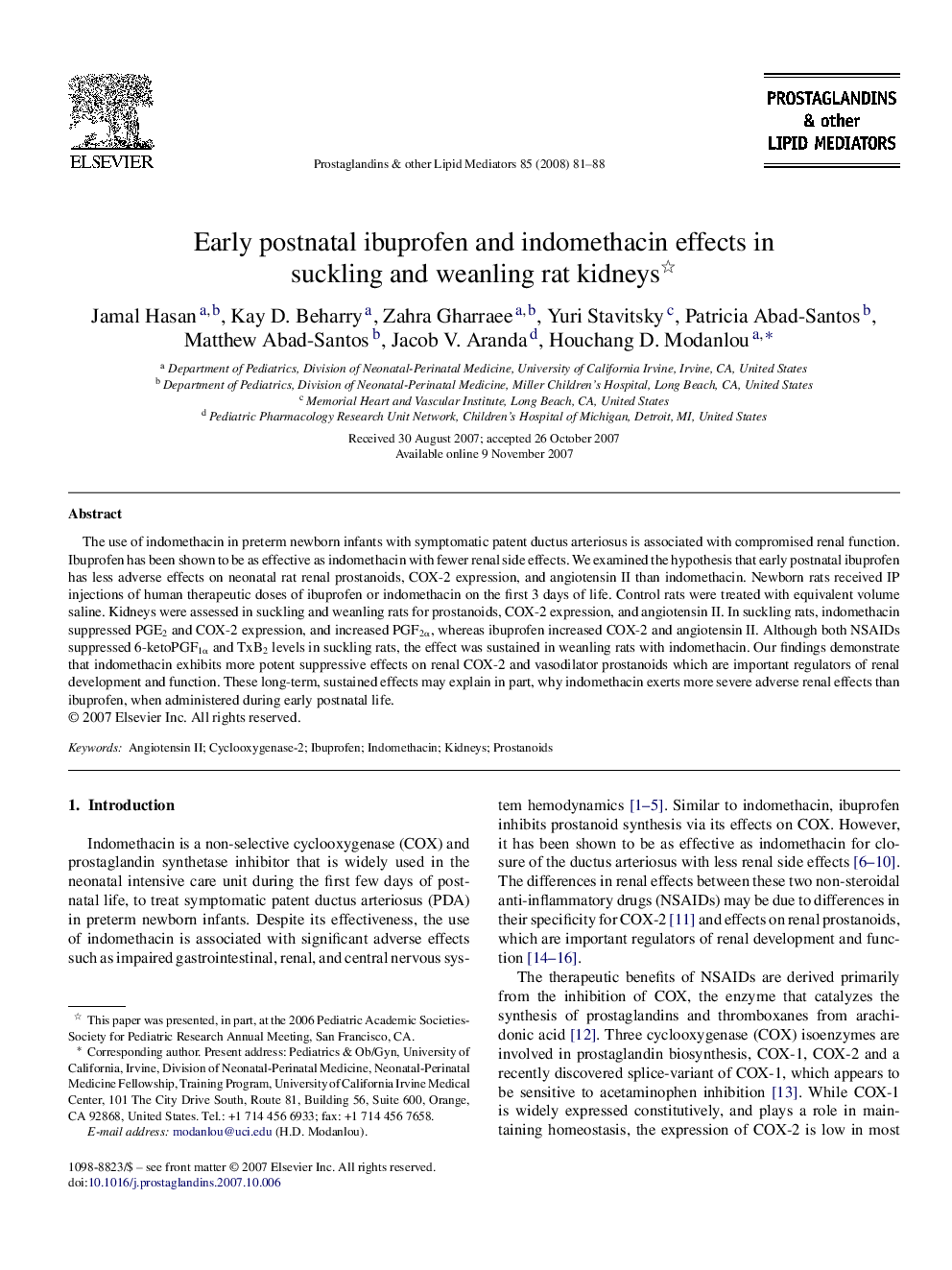| Article ID | Journal | Published Year | Pages | File Type |
|---|---|---|---|---|
| 2019945 | Prostaglandins & Other Lipid Mediators | 2008 | 8 Pages |
The use of indomethacin in preterm newborn infants with symptomatic patent ductus arteriosus is associated with compromised renal function. Ibuprofen has been shown to be as effective as indomethacin with fewer renal side effects. We examined the hypothesis that early postnatal ibuprofen has less adverse effects on neonatal rat renal prostanoids, COX-2 expression, and angiotensin II than indomethacin. Newborn rats received IP injections of human therapeutic doses of ibuprofen or indomethacin on the first 3 days of life. Control rats were treated with equivalent volume saline. Kidneys were assessed in suckling and weanling rats for prostanoids, COX-2 expression, and angiotensin II. In suckling rats, indomethacin suppressed PGE2 and COX-2 expression, and increased PGF2α, whereas ibuprofen increased COX-2 and angiotensin II. Although both NSAIDs suppressed 6-ketoPGF1α and TxB2 levels in suckling rats, the effect was sustained in weanling rats with indomethacin. Our findings demonstrate that indomethacin exhibits more potent suppressive effects on renal COX-2 and vasodilator prostanoids which are important regulators of renal development and function. These long-term, sustained effects may explain in part, why indomethacin exerts more severe adverse renal effects than ibuprofen, when administered during early postnatal life.
